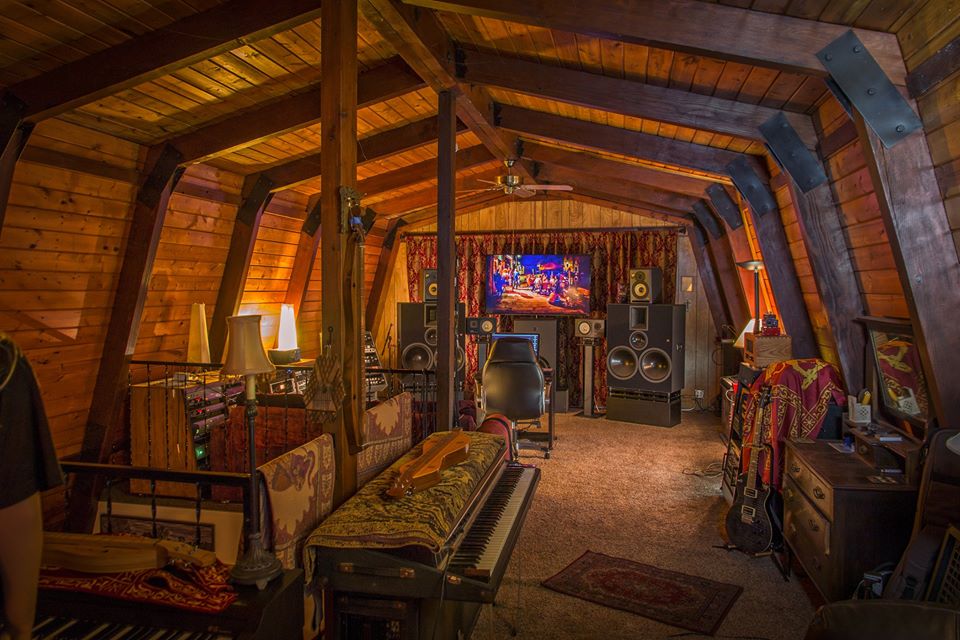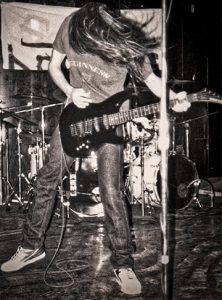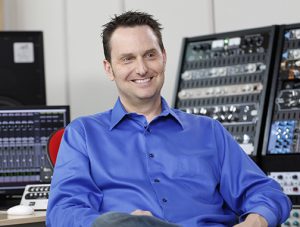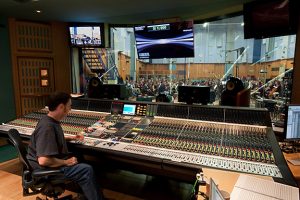As many of you know, in addition to my production and mixing work, I have a fairly successful career as a mastering engineer. It has actually been the majority of my work in this last crazy year we are living through. I recently did something people might not expect… I hired a mastering engineer.
I got my start in music playing in the early punk and alternative scenes. My bands shared the stage with the likes of the Flaming Lips, Henry Rollins, Iron Cross, Death Angel, All, Dinosaur Jr, etc. When I fell in love with recording at the end of the 80s, I had an idea that I would be a record producer and an artist, but producing and engineering became all consuming.
Throughout the years I have played sporadic gigs (usually my experimental ambient work in Europe), and I have continued to work on my own music in my limited downtime, when I was not making records for other people. Over the last several years, I have committed to developing a lot of the various musical ideas into a finished album of my own work. I was creating my own massive and insanely diverse album, that was too daunting to tackle, even for a guy that tackles daunting albums as his day job. So I have now decided to break my massive album up into a couple albums and a few singles. This has the benefit of being smaller projects I can actually get done, but it also has the benefit of creating more artistically focused albums. There is a dark ambient album on the way, with a more rock centric album to follow. Next week I am releasing my first two singles, which are really intense, aggressive and experimental instrumental tracks that I made with some of my friends from King Crimson and a couple Zappa alumni (it is definitely not everyone’s cup of tea!).
So, back to me hiring a mastering engineer…
I had some buddies help me with some of the tracking while I played guitar, but I have been doing all of the mixing and mastering myself. I mix and master for other artists all the time, but something happened to me. Despite the fact that I have worked on several hundred albums for other artists, trying to finalize my own music is something completely different. I was wrestling with a lot of the same second guessing and insecurity that so many other artists feel. I had settled on mixes for the singles that I was happy with…. and I mastered the tracks, and I thought they sounded pretty good, but I was not 100% sure. I was second guessing myself and I had been so deep into the minutia of every aspect of the tunes from beginning to end that I was losing focus… So I reached out to mastering engineer John Rodd at Clearstory Sound to see if he was available to have a go at doing some mastering for me.
John is most known for recording and mixing film and video game scores (some of my coolest game credits are actually gigs I got because John was double booked and he recommended me), but John also does lots of mastering of rock, EDM and other genres of music for artists all around the world. John and I have a similar amounts of experience, a similar level of gear, and a similar level of credits (in different areas) but John has something I do not have….. an outside perspective on this project that I am so buried and emotionally involved in!!!
I consider John and I to have equal skills, but his masters were better than mine!
It is instrumental guitar music and I am the guitar player. I think what happened is that I had been overly focused on the guitar, and that I was neglecting the whole. John made some EQ changes that altered the guitar tone that took me by surprise when I got the masters back, but when I stepped back I was able to see that John worked as a great mastering engineer that was looking at the big picture, rather than the egocentric artist focused on his personal guitar tone.
So is John a better mastering engineer than me? I think we are about equal, but I would not begrudge anyone coming to that conclusion. The most important thing John brought to the table in addition to his decades of experience was his outside point of view.
To put this into perspective, one of my coolest mastering credits is the film score album for Jordan Peele’s amazing film “Get Out.” John had been hired by the score’s composer Michael Abels to mix the score for the film (as John does for lots of big movies), and John was obviously more than qualified to also master the film score album, but John wanted some “fresh ears” (some outside perspective) on the mastering of the score album on this particular project, so he recommended me.
Is the point of this long tome to tell you to hire John or me for mastering? Absolutely not. My reason for sharing all of this with you is to get you thinking about the value of outside perspective when you are feeling rudderless, confused or stuck in a rut with your work.
If you are a hobbyist without the budget to hire guys like us, consider reaching out to friends or other people in recording forums (like Ronan’s Recording Boot Camp Hang on Facebook) that are at your level. This does not just apply to mastering or mixing. If you are feeling stuck or need new perspective or inspiration, never overlook the value of getting other people involved. Bring in others to come up with new guitar parts, or help program drums, or collaborate on lyrics…. There is something cool about doing everything yourself, and sometimes that is the perfect way to work, but it is amazing how often bringing in outside collaborators on things can take things to a level that never would have been possible by one person or one point of view. I am blessed to often work with some of the best musicians in the world, but it is amazing how many times albums I have produced have magic moments created by lesser-known or amateur musicians that might be friends of the artist, or that we happened to meet during the production process.
The world of music making has changed over the last couple decades and more projects are made with less and less people involved. I am not going to say that is wrong, or try to hold back the tide, but so many of the greatest records of all time were made by the collaboration of various perspectives. It is worth keeping that in mind when you are working on your own projects.



